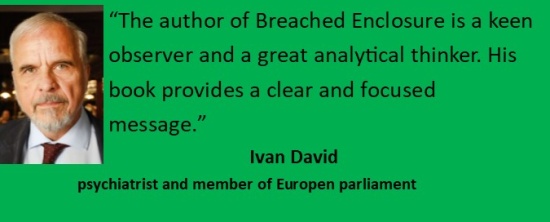From what we know of the current North Korean regime, it is the most repulsive, cruel and aggressive establishment in the world. The surrounding states (South Korea, China, Japan) are treating it accordingly. That is to say, they put some pressure on it, but at the same time they are very careful not to make the North Korean regime feel too threatened. Note that this is not a question of political views. It is a question of reason. Although the setup in South Korea is completely different from that in China, the basic processes of reason are the same everywhere. Just because someone is disgusting to us doesn’t mean we’re going to start a war.
The aforementioned states are applying a principle that has been taken for granted for thousands of years and has only begun to be ignored by Western elites in recent years. Just as everything to do with common sense and historical experience has been ignored. The principle assumes that, just as we do not choose what resources lie beneath the surface of our land, we do not choose the political regimes in other countries. Occasionally we may support a coup somewhere or even wage war to force change, but that is very risky, very costly, and every thinking person tries to avoid it. Except in cases like the US attack on Grenada, where a few hundred marines managed to change the rulers in a few days.
We can sympathize with some people and loathe them, but we have to live with what is.
This approach has gradually led to rising tensions, then to a cold war, then to a hot war, and a growing risk of a major nuclear conflict.
A normal approach involves..:
- Understanding how the regime behaves and how it reacts to what stimuli
and to treat it in a way that does not lead to war. - In the second place, to create economic relations that are beneficial to us,
- And if there is room, to try and help the local people, to alleviate suffering, to push dictators towards less brutal ways of governing, etc.
So it’s mostly analytical work. That is why diplomacy is likened to chess – complex analyses, comparing options, sensitive negotiations… all the more so because it involves relations with many countries at the same time and everything has to be balanced.
It is right and legitimate to demand that the same approach be taken towards Putin’s Russia. But finding such an approach requires a lot of thought and a lot of debate.
Over the last 10 years or more, the prevailing view among Western political, intellectual and policy elites has been that the correct strategy towards Russia is intimidation and the constant instigation of conflict (so-called ‘negotiation from a position of strength’). This approach has gradually led to rising tensions, then to a cold war, then to a hot war, and a growing risk of a major nuclear conflict. Proponents of this approach respond to criticism by arguing that it stems from the nature of Russian ethnicity (or the nature of the Putin regime) and that any other strategy would lead to the same or worse results.
If Western politicians and managers could cause space bodies to collide, they would already be working on it.
But a more realistic understanding of the Western strategy is that it is not related to Russia at all and that it is a typical product of the mentality of the new aristocracy, which necessarily leads to suicidal behaviour. Before Russia, we had the Green Destiny, a plan unique in that it led to the destruction of a way of life, an economy and a landscape, and to incredible environmental devastation without having even the slightest positive effect. Before that, it managed to attract masses of migrants numbering in the millions, a large proportion of whom are openly hostile to Western civilisation. The conflict with Russia can be seen as a continuation of this line. If Western politicians and managers could cause space bodies to collide, they would already be working on it.


